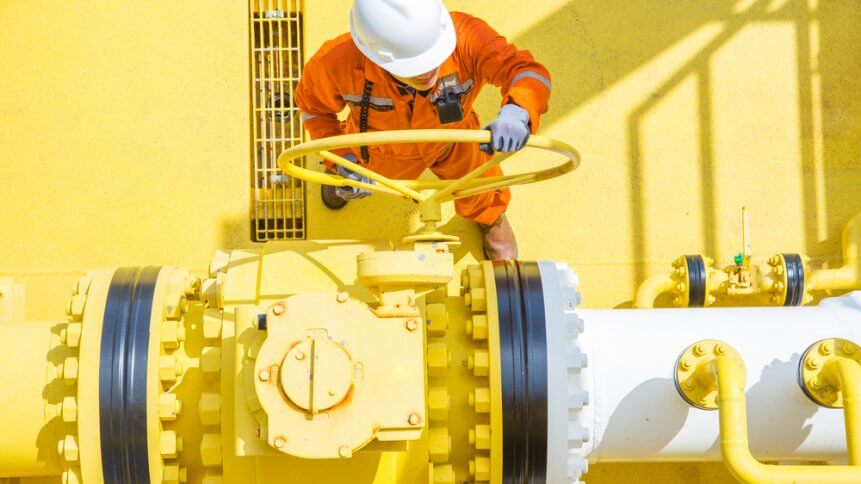What are the leading tech fueling a greener oil and gas sector?

Despite a high level of tech innovation in their field, today’s oil and gas organizations are faced with a scarcity of resources and high market volatility, but responsible for 42% of global emissions. These companies’ most pressing concern right now is how they can make their industry less harmful to the environment. Or, at least, it should be.
With well-filled coffers, highly-talented (and well-paid) minds, oil and gas companies have few excuses when it comes to employing tech for good or, from another perspective, to reduce its negative environmental impact, even just a bit. While Bill Johnson, CTO of Denver-based petroleum firm DCP Midstream, said “it’s hard to disrupt the industry just by writing apps or putting in new technology,” by committing to the ongoing and successful implementation of new tech – oil and gas firms can start to make an impact.
New technologies are not only helping to dramatically enhance the safety of operations, but new efficiencies can help these firms strive to mitigate their environmental damage.
# 1 | Artificial Intelligence (AI)
In 2018, the global spend on AI in the oil and gas market was reported to be around US$1.75 billion, and projected to surge up to US$4.01 billion by 2025, according to Zion Market Research. “Companies in the oil and gas industry will either be a catalyst for change, or they will be a casualty of change,” David Willis said as reported in WSJ.
With just 5% of big data being cultivated by energy companies, Willis – a 25-year veteran of BP – said potential was being thrown away. He elaborated on the wasted opportunity of big data, which was a pain point that Willis pointed out after he was scouted to be part of Google’s new oil and gas group.
AI-powered systems can collect, access, and analyze data from underwater oil explorations to refineries and provide valuable insights. With the insights provided, fossil fuel companies can increase efficiency in extracting valuable minerals, locate new locations for mining with higher accuracy, plus potential to seek a new source of lucrative resources.
# 2 | Digital Twin
Next, digital twin tech is set to future-proof the oil and gas industry. Gartner predicts that half of large enterprises will adopt some form of digital twin by 2021, leading to a 10% efficiency increase.
A digital twin is, in short, a 360-degree virtual copy of a physical asset or product in real-time. The twin of the product or space is ‘formed’ based on data transmitted from sensors and data collectors such as IoT (Internet of Things) placed in the physical world. Based on this capability, a digital twin is set to help companies in driving smarter business decisions, improving capital investments, accelerating operations and production lines, and essentially bolstering health and safety measures.
YOU MIGHT LIKE

North Sea oil will be traded on blockchain
Chevron plans to mass deploy the technology on its equipment used in oil fields and refineries by 2024, in a bid to minimize the operational budget. The digital initiative is predicted to help the company save millions of dollars in maintenance costs.
# 3 | Blockchain
While harvesting precious raw material is the core operations of oil and gas companies, a safe and transparent means of transaction is equally important. In 2018, a “digital ecosystem for physical post-trade processing” was launched to support oil and gas heavyweights such as Royal Dutch Shell, Equinor, Mercuria Energy Group, and many more.
The blockchain initiative is led by London-based Vakt and enables members of the digital platform to trade in a secured and updated ecosystem. The digital ledger covers financial functions such as digitizing letters of credit. Recently, Saudi Aramco Energy Ventures invested US$5 million in the platform to enhance the system and potentially explore new functions.









